School and Afterschool Meals Fuel Student Health and Learning
School and afterschool meals reduce hunger, and support learning, behavior, attendance, and health and well-being.

Did You Know?
Research shows that school meals are incredibly important for students, especially students from households with low incomes? Learn more in our fact sheet.

Healthy School Meals for All

Nine States Lead the Way
By offering Healthy School Meals for All students, states are seeing measurable gains in student participation. Nine states – California, Colorado, Maine, Massachusetts, Michigan, Minnesota, New Mexico, New York, and Vermont – have already shown us what is possible.
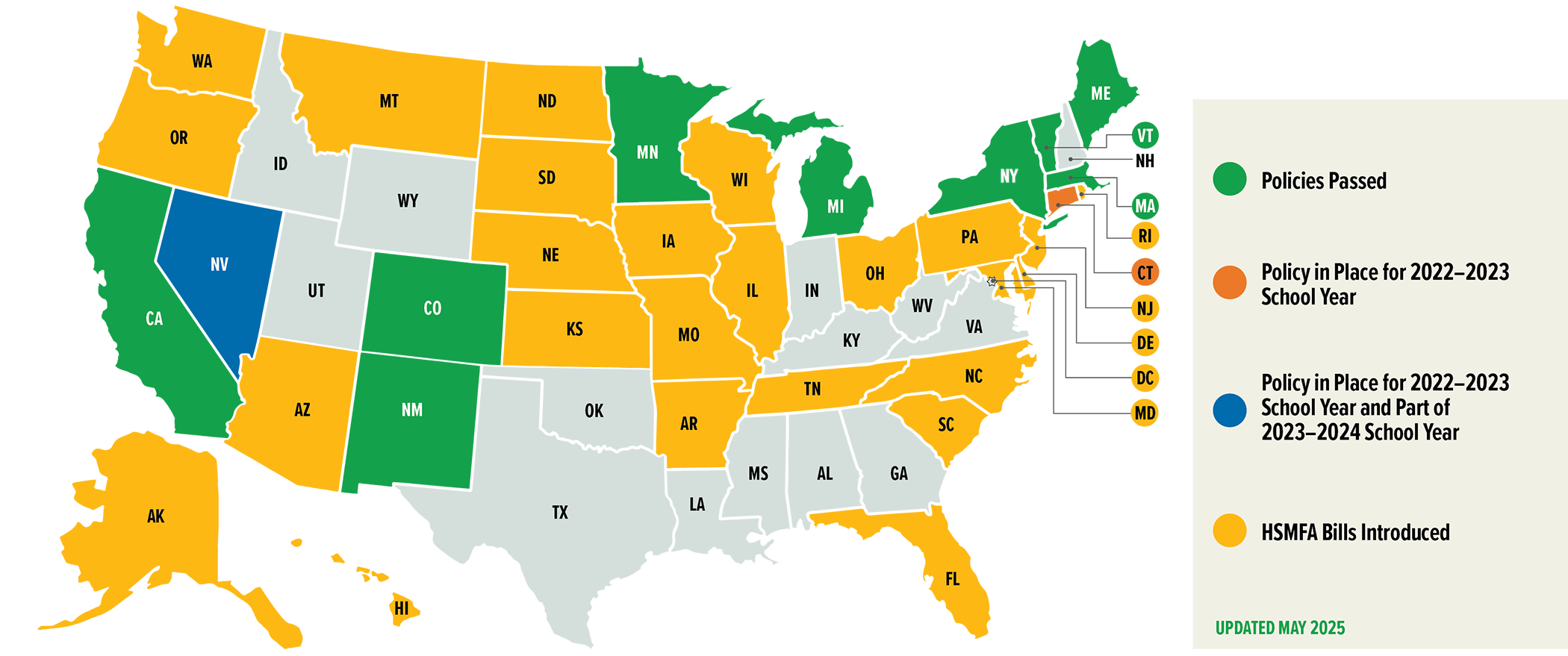

Celebrating New York, the Ninth Healthy School Meals for All State
Congratulations to New York, the ninth state in the nation to pass a Healthy School Meals for All policy ensuring all students are well-fed and ready to learn! Beginning with the 2025–2026 school year, every student attending a public, charter, or eligible private school participating in the National School Lunch Program and School Breakfast Program, can access free school breakfast and lunch, regardless of household income.

Community Eligibility Provision
CEP is a proven pathway to Healthy School Meals for All, allowing high-poverty schools to serve more students with fewer administrative hurdles. Learn more in FRAC’s latest CEP report.
SNAP Cuts Are Cuts to School Meals
The recently passed reconciliation budget package made deep cuts to SNAP that will undermine gains made in school meal participation.
-
-
When children lose SNAP, they lose their automatic eligibility for free school meals.
-
Fewer schools will be eligible to offer free meals to all their students through CEP.
-
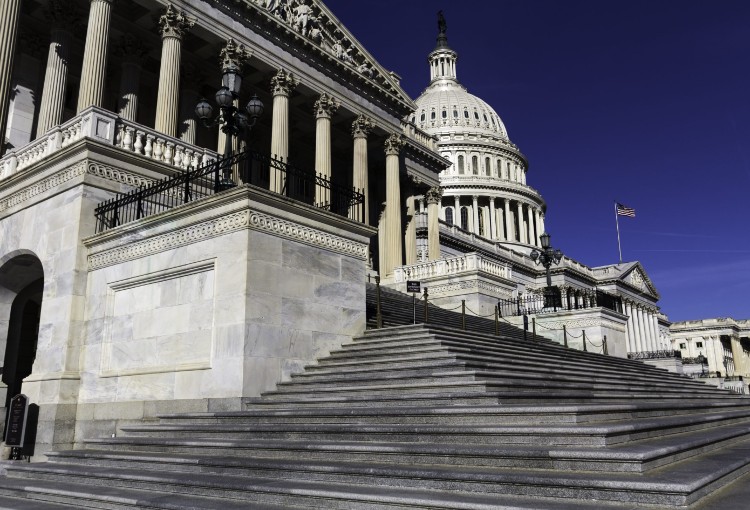
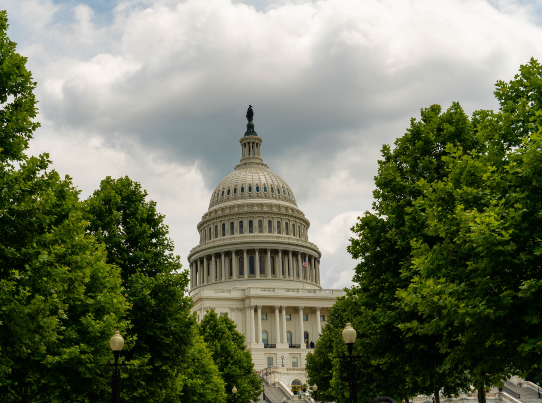
SNAP Cuts Must Be Reversed
Recently passed federal cuts to SNAP threaten access to school meals, especially in high-need communities. Experts warn that the SNAP cuts will have downstream effects on CEP by reducing the number of students who automatically qualify for free school meals. FRAC is calling on Congress to use any legislative vehicle to mitigate the harm of SNAP cuts and do everything in its power to strengthen and restore SNAP and protect access to free school meals.

Spotlight on Afterschool Meals
Afterschool suppers and snacks fill a critical nutrition gap, nourishing millions of children in low-income households after school. Afterschool meal programs are required to offer educational or enrichment activities in addition to meals, which enables children to learn and stay safe when school is out. The meals served through this program draw children to these activities.
Spread the Word: Share FRAC Chat Blogs

FRAC’s latest CEP report “showcases the significant growth in CEP utilization by schools and school districts around the country since becoming available nationwide over a decade ago.”

Budget Reconciliation Update: Cuts to SNAP are Cuts to School Meals
“If Congress cuts SNAP or Medicaid and children lose access to these programs, they will also lose their direct connection to free or reduced-price school meals and will have to complete a school meal application.”

Schools Embrace Community Eligibility as a Path Toward Healthy School Meals for All
“During the 2023–2024 school year, one out of every two National School Lunch Program schools utilized CEP to increase students’ access to healthy school meals.“
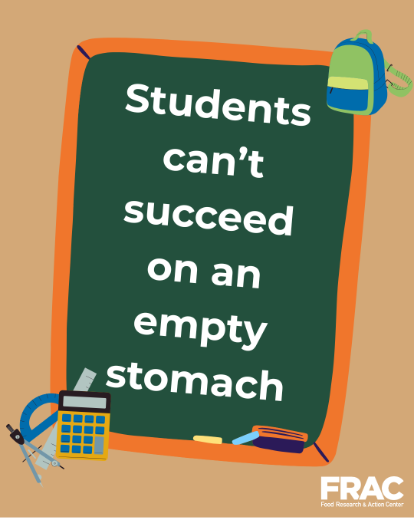
Social Media Toolkit
Download graphics and share!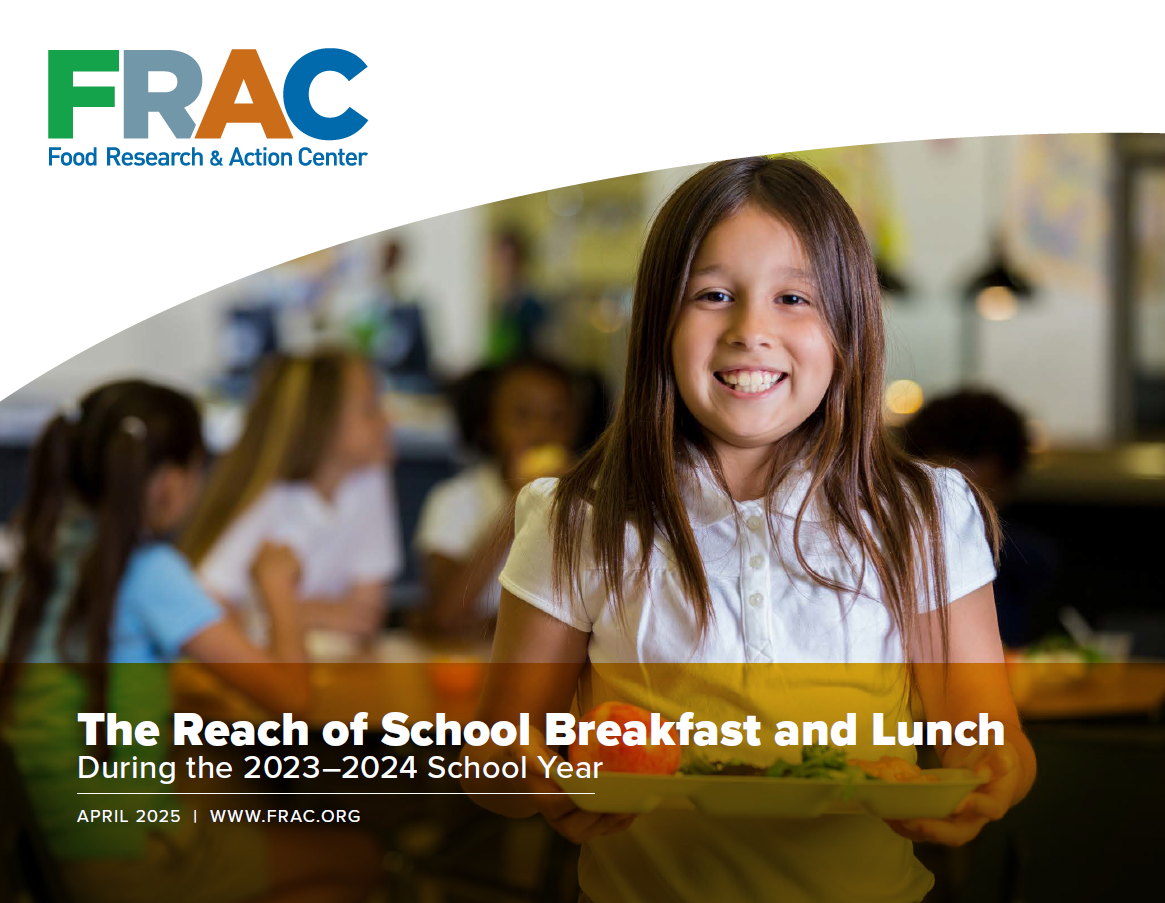
The Reach of School Breakfast and Lunch During the 2023–2024 School Year
Read more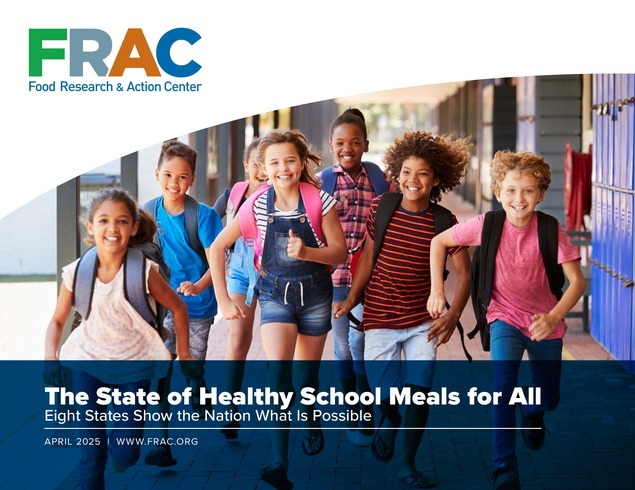
The State of Healthy School Meals for All: Eight States Show the Nation What Is Possible
Read more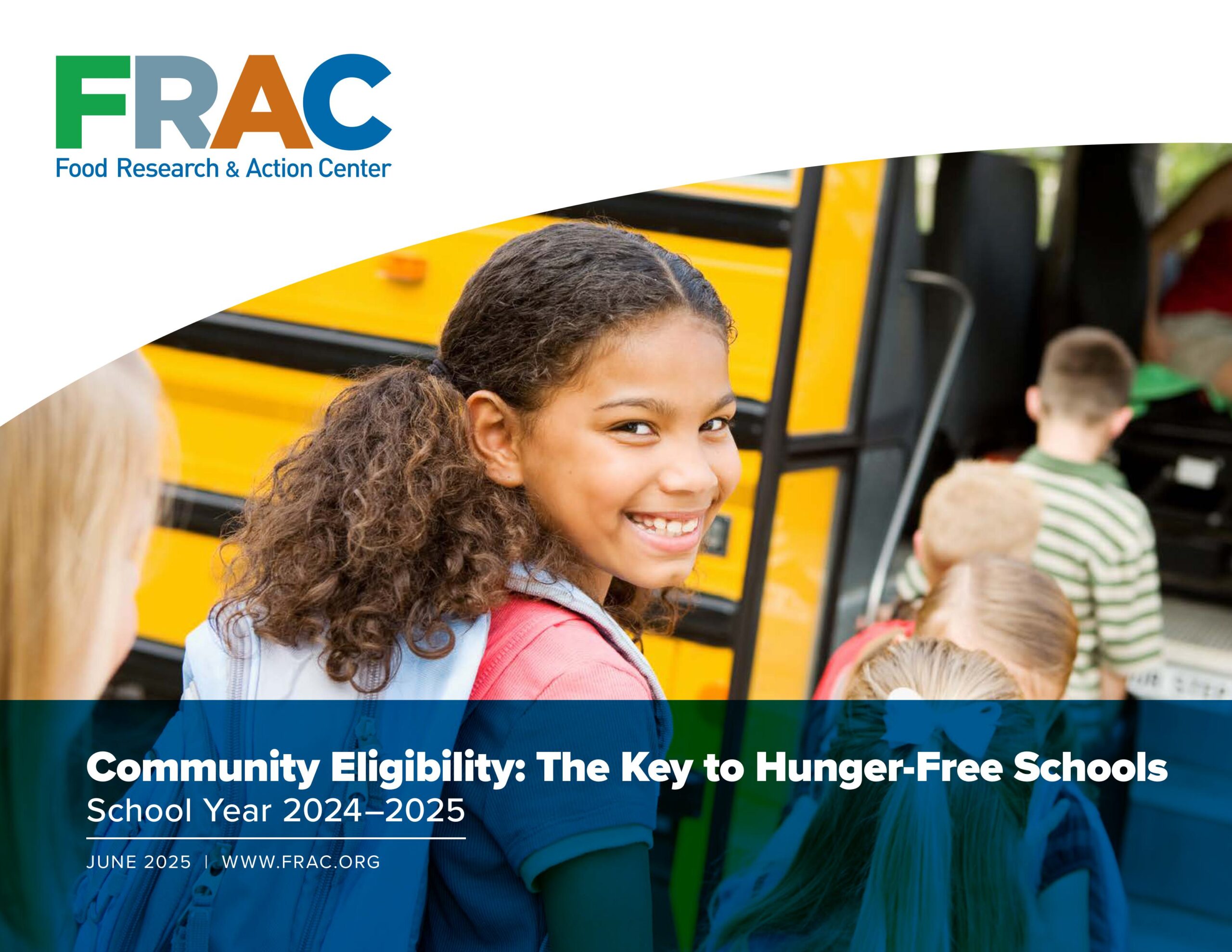
Community Eligibility: The Key to Hunger-Free Schools, School Year 2024–2025
Read more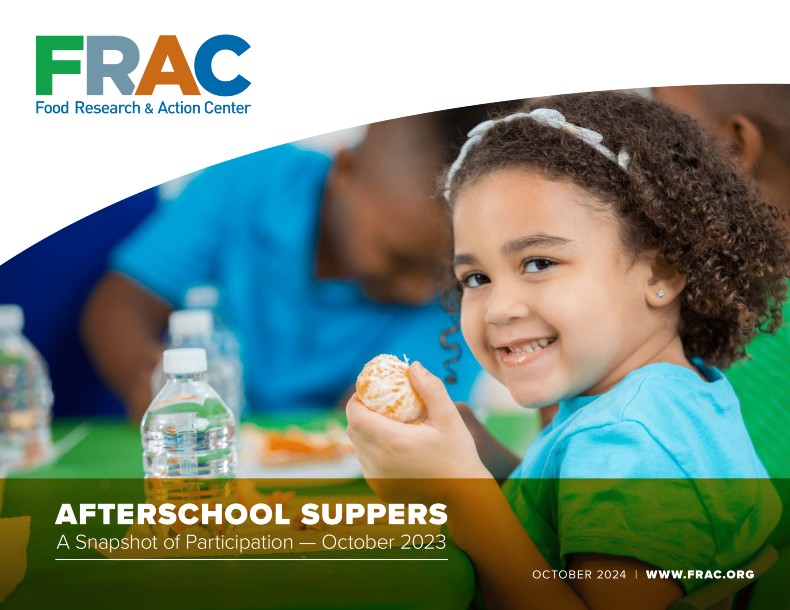
Afterschool Suppers: A Snapshot of Participation – October 2023
Read more
